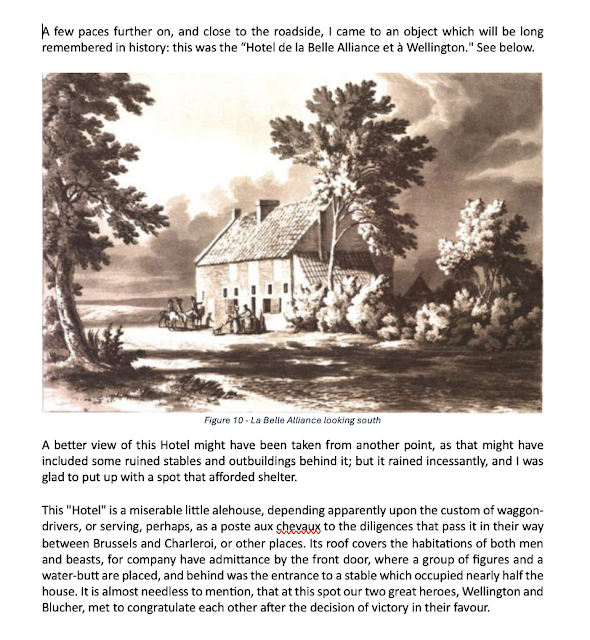Robert Hills (1769–1844) was a founder member of the Society of Painters in Water Colours. He visited the battlefield on 22 July 1815, and the following year produced "Sketches in Flanders and Holland: with some account of a tour through parts of those countries, shortly after the battle of Waterloo; in a series of letters to a friend" He described the book as ‘a faithful picture of the Low Countries, immediately subsequent to a most eventful period of their history’.
The fact that Hills visited the battlefield so soon after the 18th June and the fact that he drew with such careful attention to detail means that his pictures are particularly useful. Moreover, not only was a fine artist, he also supported his illustrations with some very careful descriptions that are especially useful to anyone studying the battle.
I have seen his images before but through the kind lead of 'Prince of Essling' on TMP I have been introduced to the supporting text.
This text has allowed me to understand the location of a small cottage. My father and I work on the buildings together - I do the research and he creates the models. When we first created La Belle Alliance and the building to its southwest, Trimotion, we could see an indistinct building at right angles to Trimotion and immediately to its front. These pictures show the arrangement:
Based on this slight evidence, we decided that this was a small barn and depicted it thus:
By reading the Robert Hills text alongside his pictures it is now clear to me that the cottage he describes is in the same location as our attempt at a barn.
Given this information, we will need to build a new model which takes account of this very interesting and previously misunderstood information.




























